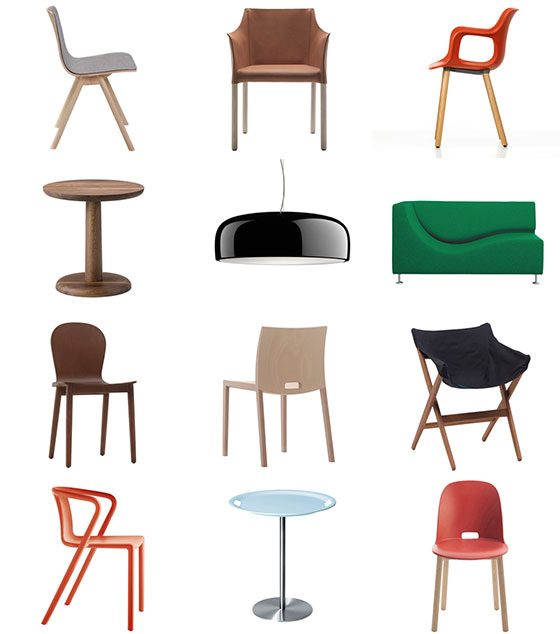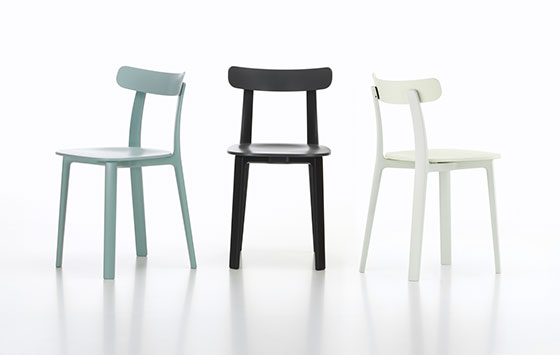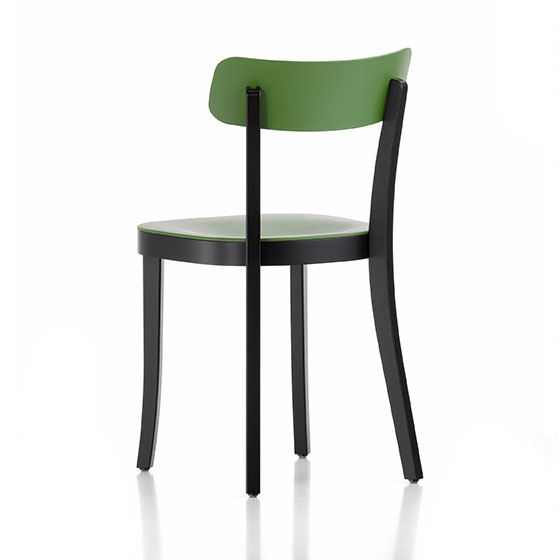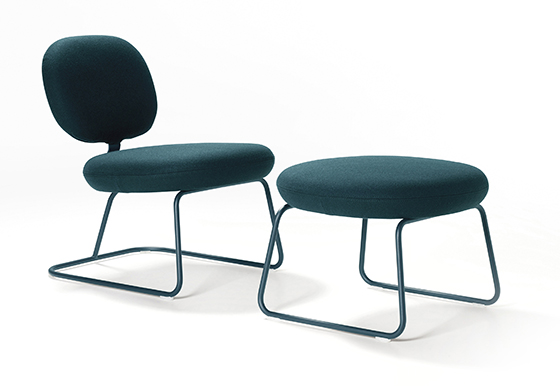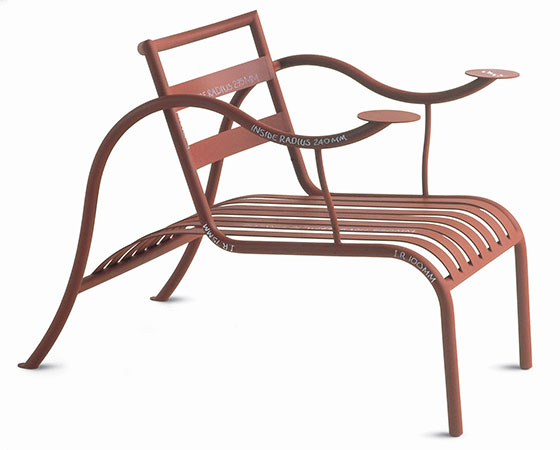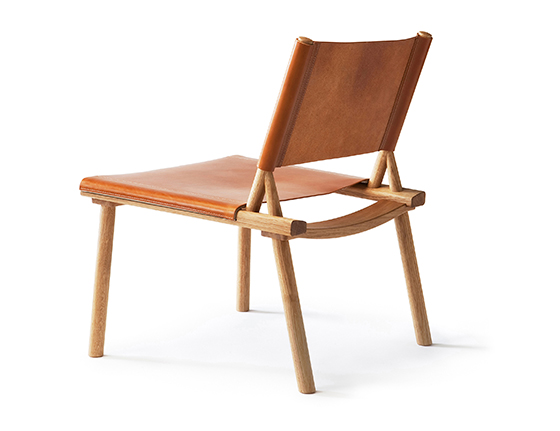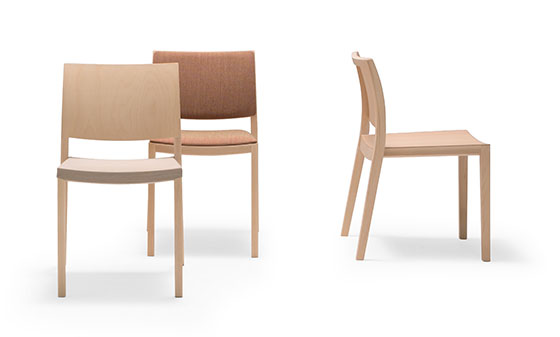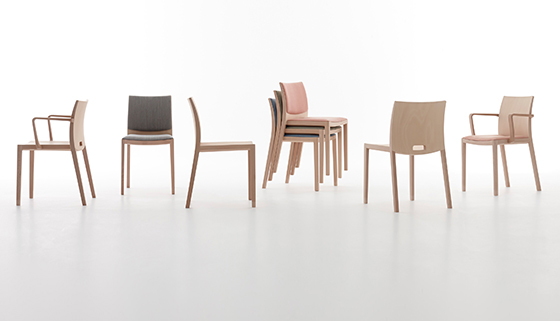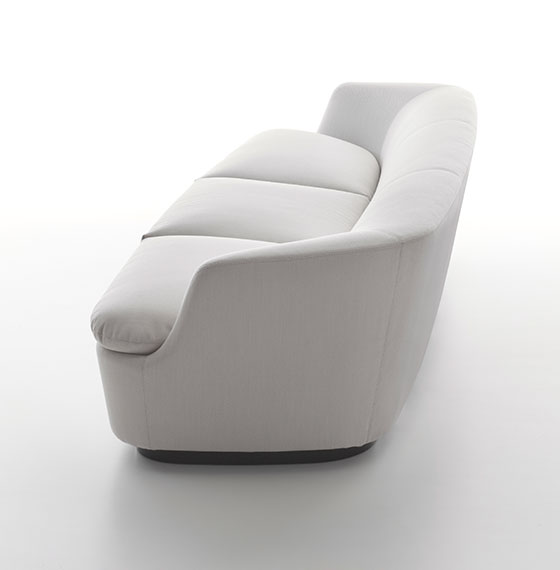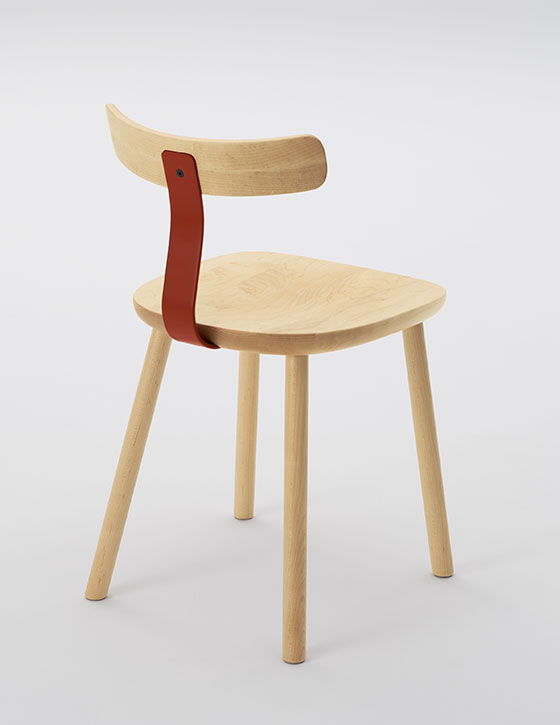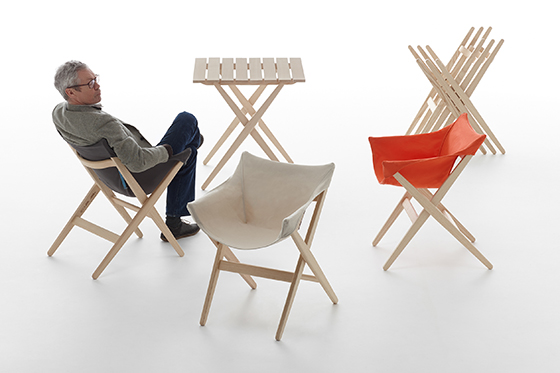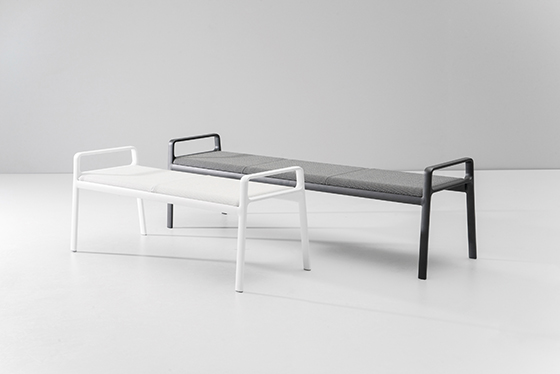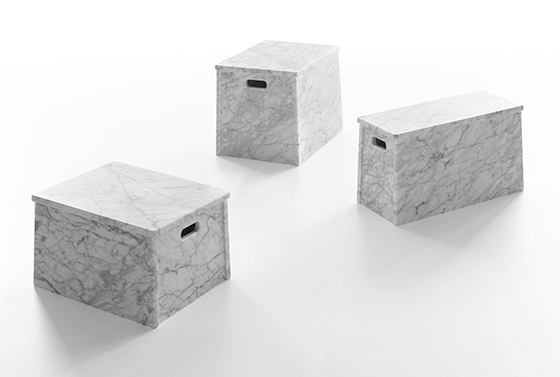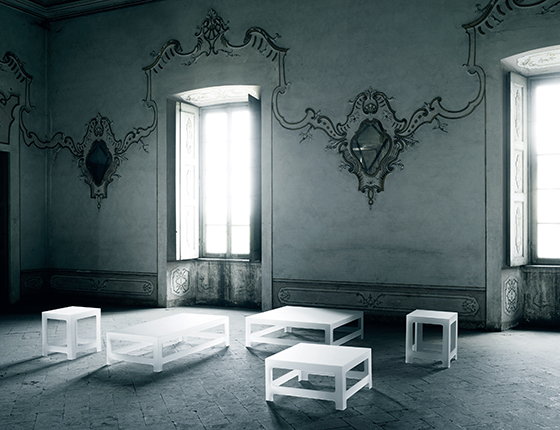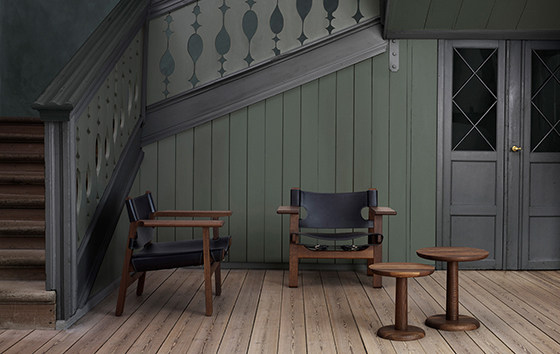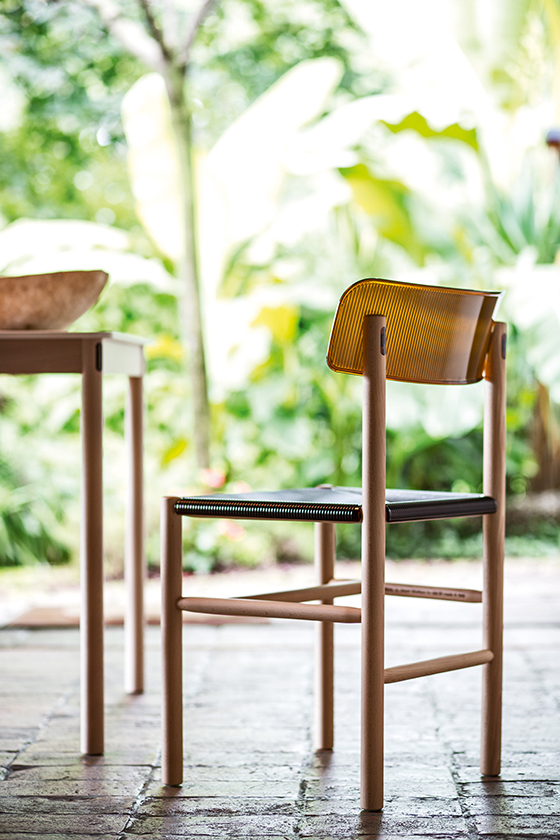Material Tendencies: Jasper Morrison
Texto por Anita Hackethal
Berlin, Alemania
25.04.16
Fresh back from Milan Design Week, with pockets full of news and valuable insights, we start off with this exclusive interview with Jasper Morrison. Continuing our series of articles on Material Tendencies, we spoke to the British designer who has worked across a wide range of materials during his contributions to the design industry over the past 30 years.
Jasper Morrison with Duos chair for Andreu World - Photo © Architonic / Anita Hackethal
Which material would you choose if you had to restrict yourself to working with just one for the next three years?
‘What would happen after three years? I could chose another one?’ Jasper Morrison is smiling. ‘OK. It would be quite painful. I would maybe choose wood and then after three years I would change to plastic. When you design, it is always a question of getting a quality in an object and a sort of visual value – and the two materials that do it the best are wood and plastic. Plastic because you have so many possibilities and it is cheap. And wood because you have the sensibility of the material, the tactile quality, the warmth of its appearance and I think it is quite a good moment for wood. People appreciate it a lot. For example, the chairs I did for Maruni. You know, this very populist kind of shaped wood.'
At what point within the design process do you decide in favour of a specific material? What comes first – the shape or the choice of material?
'It is always different. It can be a process that you see. A long time ago I did a chair for Magis called Air-Chair and the idea derived from a piece of moulded tube. By imagining the tube, there was the leg and then I drew the rest of the chair from there. It could be also something you see in the street or in the background of the movie, that gives you an idea for a shape. Or it could be seeing two materials together, when you realise there is a sort of play between the two materials and it gives something. That was the case with the Basel chair I did for Vitra, which is a very typical typology, but I realised if we made the seat on the back plastic, it would give it a sort of freshness, which the old model didn’t have. So I like those kinds of discoveries of putting materials together to make things fresh again.'
(APC) All Plastic Chair for Vitra, 2016 - Photo © Vitra
So what materials do you like to put together?
'I think this sort of technical fabric combined with the raw beech is very nice, like I did with the upholstery model for Andreu World. Another example would be the T-chair that I did this year for Maruni. It is a wood seat with wood legs, with the back connected by bending steel bars that come in three colours: red, black and a dark green. So the colours of Japanese lacquer combined with the wood. I am always looking for ways to make things richer by colour and by material combination.'
With all your experience working in the design industry – have new technologies and manufacturing processes influenced your way of working as a designer?
'I always avoid completely this sort of rendering process because it looks so horrible. You might have a fantastic idea to combine wood and something else and if you render it, you kill the project. Once, one of the companies I worked for, they were impatient to do a project, so the technical team sent me a rendering and I cancelled the project because a rendering is so incredibly damaging to the vision. And if you loose the vision that you have in your mind of the end product by seeing a rendering, you are completely off course and you can’t find it again. Of course we use 3D a lot, but when we look at it on screen it is either as a wire model or as a sort of whitish-grey surface, just like a model. So I try to keep all that material, aesthetic, colour and everything away from that process. Until we find the shape, I keep it in mind as a sort of target, as a goal. And then once we have the 3D defined, then we can start to modulate in real life and not with a rendering.'
Thinking Man’s chair for Cappellini, 1986 - Photo © James Mortimer
December Chair (with Wataru Kumano) for Nikari, 2014 - Photo © Chikako Harada
Duos chair for Andreu World, 2016 - Photo © Andreu World
Please say a few words to the new chair for Andreu World, presented here at Salone del Mobile in Milan.
'Last year we presented a chair called Unos and let’s say it was my first adventure in the super contract sales area. We put a lot of effort into it, but I think I did not fully understand the requirements of that kind of product. So I put in some details, which gave the chair character, but this also increased the costs a lot and the result was that the chair was on a level where it could not compete for the kind of contract sales that the company like Andreu World has. Therefore we agreed to do a second one for this year, which we called Duos. We took away the expensive detailing and we try to reduce to a chair, which has good proportions, good ergonomics, a nice character and a great cost. So that’s really where we are now. Let’s see what happens. I think it’s a better chair.'
Unos chair for Andreu World, 2014 - Photo © Miro Zagnoli
Orla Sofa for Cappellini, 2014 - Photo © Miro Zagnoli
'T' chair for Maruni, 2016 - Photo © Yoneo Kawabe
Fionda dining chair for Mattiazzi, 2014 - Photo © Miro Zagnoli
Park Life bench for KETTAL, 2013 - Photo © KETTAL
Toulouse and Perpignan for Marsotto Edizioni, 2011 - Photo © Miro Zagnoli
London Paris Rome for Marsotto Edizioni, 2010 - Photo © Marsotto
Nezu Collection for Glas Italia, 2012 - Photo © Glas Italia
Pon Series for Fredericia Furniture, 2016 - Photo © Fredericia


